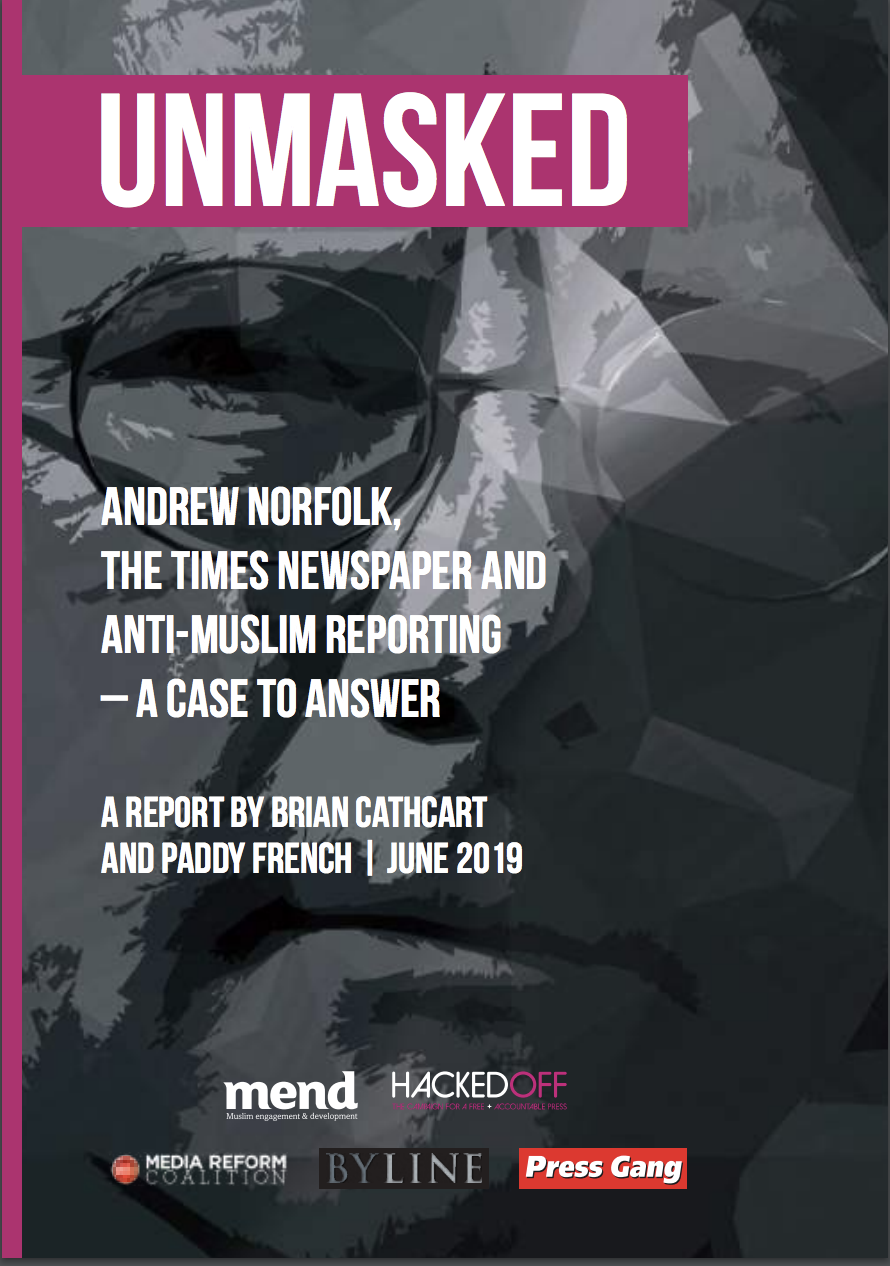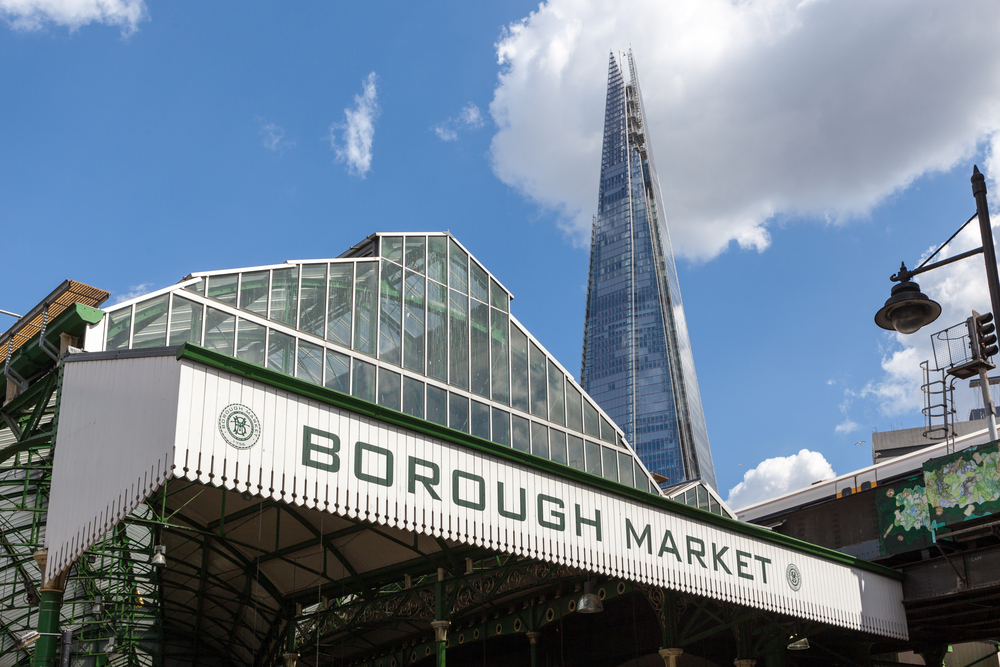Weekly Notes: legal news from ICLR — 1 July 2019
This week’s roundup looks at the law on weddings, journalism, offensive communications, judicial pensions, a terrorism inquest, and fees for criminal advocacy.… Continue reading

Family law
Marriage law under review
The Law Commission has begun reviewing the laws around how and where people can marry in England and Wales, having agreed the Terms of Reference for the project with the Government. According to a government announcement,
“The two-year project, which is the first of its kind, will review the current laws on how and where marriages can take place — many of which date back to the 19th Century.”
The Commission aims to propose options for a simple and fair system to give modern couples meaningful choice about their wedding ceremony. The project will:
- consider where a wedding should be able to take place
- consider how to remove unnecessary red tape which can hamper choice and increase the cost of wedding venues
- aim to ensure that the law works for all couples and all faiths, including those who are not as well served by the current buildings-based system
- seek to make the law more simple and certain, so that it is clear whether a couple’s marriage is legally valid
The remit for the project includes developing a scheme that would allow non-religious belief groups, such as humanists, and independent celebrants to celebrate weddings, enabling Government to widen the routes to legally binding ceremonies if it chooses to do so.
There is also an infographic summarising the scope of the commission’s review. (Hint, it has lots of lovely pictures, all of them, like our own stock image, studiously non-presumptive about the gender, ethnicity or religious beliefs of the participants.)
NB. The one thing that definitely isn’t a thing, is Common Law Marriage. (Read this guidance note from the Transparency Project to find out more about the myth and the attendant risks.) Without getting married, a couple living together or cohabiting do not enjoy the same rights in law as a married or formerly married couple. It is probably this, rather than the anxious questions about rings, cakes, flowers and venues that should be occupying the loving partners’ minds.
But having made that commitment, of course, the big day is definitely a thing. How much of a thing it is sensible to make it is another question. If it’s a question of whatever floats your boat, just remember: it doesn’t have to be titanic. (However, if you do want a recommendation, Middle Temple makes a fine venue in the summer time.)
Judiciary
No further appeal in pensions discrimination case
The UK Supreme Court has refused the Ministry of Justice permission to appeal against the Court of Appeal’s decision that it discriminated against judges on the grounds of age, race and equal pay in relation to changes to their pension. Solicitors Leigh Day, acting for around 230 judges forced to leave the Judicial Pension Scheme, reported that
“The government asked for permission to appeal the ruling but permission has been refused by the Supreme Court because the government failed to ‘raise an arguable point of law’. The decision today covers the cases for judges’ pensions and the firefighters’ pension claims.”
The case was reported in the Employment Appeal Tribunal as McCloud v Lord Chancellor and Secretary of State for Justice UKEAT/71/17; [2018] ICR 1039; and was combined in the Court of Appeal with a case about firefighters’ pensions called Sargeant v London Fire and Emergency Planning Authority [2018] EWCA Civ 2844; [2019] WLR(D) 1.
The result of the refusal of permission for further appeal means that the government will have to find money to fund the proper pensions it should have been paying these valuable public sector workers. Disappointingly, even the sensible newspapers like The Times and the Guardian chose to concentrate, not on the government’s lawbreaking, but on the alleged £4bn cost to the anonymous taxpayer.
I’ve had enough of @TimesLaw’s mealy-mouthed tabloid sneering at the legal professions. If the government had acted unlawfully over nurses’ pensions, would we see a headline like this? #unsubscribe pic.twitter.com/BSAYO3nnQp
— James M. Turner QC (@ShipBrief) June 28, 2019
The complaint prompted a debate on Twitter, with Catherine Baksi (who writes for the Times) defending the newspapers’ coverage and various lawyers regretting that the reporting seemed to be over-reliant on tired stereotypes and lacking in helpful explanation.
Meanwhile, challenging conditions for part-time judges known as recorders have prompted an article in the Guardian comparing them to zero-hours contractors: Junior judges face zero-hours working conditions, say lawyers
In a recent speech, the former President of the Family Division, Sir James Munby, commented on the response of the government in dealing with the judicial recruitment crisis, in the form of an “urgent response” on 5 June 2019 with interim measures to address the problem: “Reassuring words, until one remembers that the relevant report of the Senior Salaries Review Board had been on his desk since October 2018”. (See The family court in an era of austerity: problems and priorities — Sir James Munby, via the Transparency Project.)
Law reform
Non-consensual images and offensive communications
Other targets for review by the Law Commission announced recently include the making and sharing of non-consensual sexual images — what is commonly known as “revenge porn” — and the criminal law which governs abusive and offensive communication online.
In relation to the first of these, the government announcement said:
“Justice Minister Paul Maynard and Digital Secretary Jeremy Wright have asked the Law Commission to examine whether current legislation is fit to tackle new and evolving types of abusive and offensive communications, including image-based abuse, amid concerns it has become easier to create and distribute sexual images of people online without their permission.
The review, which will be launched shortly, will consider a range of disturbing digital trends such as ‘cyber-flashing’ — when people receive unsolicited sexual images of someone over the phone — and ‘deepfake’ pornography — the degrading practice of superimposing an individual’s face onto pornographic photos or videos without consent.
The move builds on government action in recent years to better protect victims and bring more offenders to justice, including making ‘upskirting’ and ‘revenge porn’ specific criminal offences.
The review will also consider the case for granting automatic anonymity to revenge porn victims, so they cannot be named publicly, as is the case for victims of sexual offences.”
In relation to the second project, the Law Commission reports that
“In its White Paper published in April 2019, the Department for Digital, Culture, Media and Sport (DCMS) welcomed the Law Commission’s recommendations and announced that the Law Commission will immediately begin work on considering specific recommendations for reform.”
This second phase of the project will cover:
“1. Reform of the communications offences (in section 1 of the Malicious Communications Act 1988 and section 127 of the Communications Act 2003) to ensure that they are clear and understandable and provide greater certainty to online users and law enforcement agencies. In addition, the glorification of violent crime online and the encouragement of self-harm online are issues which will be considered in the context of the review of communications offences.
2. The review will consider whether coordinated harassment by groups of people online could be more effectively addressed by the criminal law.”
The Commission aims to publish a consultation paper, inviting views on any recommendations for law reform, in Spring 2020.
Media law
‘Unmasked’ report
 In a 65-page report entitled Unmasked: Andrew Norfolk, The Times newspaper and anti-Muslim reporting — a case to answer, Brian Cathcart and Paddy French develop in some detail their contention that three major pieces of investigative journalism by The Times’s reporter Andrew Norfolk contained fundamental inaccuracies, in particular about Muslims or their involvement in the matter being reported, and that this raises “serious questions about Norfolk’s impartiality and motivation and suggest that he has, knowingly or unknowingly, breached standards of conduct and ethics that we believe responsible journalists would observe”.
In a 65-page report entitled Unmasked: Andrew Norfolk, The Times newspaper and anti-Muslim reporting — a case to answer, Brian Cathcart and Paddy French develop in some detail their contention that three major pieces of investigative journalism by The Times’s reporter Andrew Norfolk contained fundamental inaccuracies, in particular about Muslims or their involvement in the matter being reported, and that this raises “serious questions about Norfolk’s impartiality and motivation and suggest that he has, knowingly or unknowingly, breached standards of conduct and ethics that we believe responsible journalists would observe”.
The book’s thesis is explained in a post by Cathcart on Inforrm’s blog, Unmasked: The Andrew Norfolk Report in 10 points , in which he says that in investigations over a 15-month period, the Times’s chief investigative reporter “presented a Muslim or Muslims as posing a threat to white people or to wider society when the facts did not support this”, that this was done at a time when “Muslims were already suffering peak levels of hate crime” and that “ important facts were omitted or marginalised, untrustworthy or inadequate witnesses were relied on, quotations were taken out of context, expert testimony was ignored — and there were clearly shortcomings in verification”. Moreover
“The Times newspaper management fully endorsed Norfolk’s flawed reporting, putting it on the front page, supporting it in editorials and comment articles and defending it stubbornly even as contrary evidence mounted up.”
The three series of articles began with these reports:
- ‘Christian child forced into Muslim foster care’ (28/8/17),
- ‘Security stepped up after scathing report led to death threats’ (25/7/18),
- ‘Jailed rapist given chance to see his victim’s child’ (27/11/18).
The first of these, the so-called Muslim Foster Carer case, was the subject of a lot of commentary, including by the Transparency Project, and forms one of the Case Histories in the book, Doughty, Reed & Magrath, Transparency in the Family Courts: publicity and privacy in practice (Bloomsbury Professional, 2018). Apart from whatever bias or prejudice may or may not have informed the original reporting (about which we form no opinion), it was certainly not a shining example of fair and accurate court reporting and a complaint by the local authority was upheld by ISPO, the newspaper’s regulator.
That IPSO, the supposedly Independent Press Standards Organisation of which The Times is a subscriber, could have been more active in the case of Norfolk’s stories is one of Cathcart’s complaints. It has, he says, “done the least it could to uphold standards in these cases, essentially giving the reporter and his paper free rein to continue”.
Further reading:
Inforrm: The Times and Intolerance: A Case to Answer — Julian Petley
Review by Media Reform Coalition
Response by The Times (£): The Times view on media campaigners and Andrew Norfolk: Press Gang
Terrorism

Inquest into London Bridge attacks
Last week Judge Mark Lucraft QC delivered his conclusions in the inquests into the eight deaths resulting from an attack on 3 June 2017 by three men in a rented white van, who ploughed into pedestrians on London Bridge before jumping out near the busy restaurants and bars of Borough Market and stabbing victims with knives, before being shot dead by armed police. (See Weekly Notes, 5 June 2017)
You can read the full transcripts of the inquest and the Chief Coroner’s conclusions via the official London Bridge Inquests website. The determinations made are that the eight fatal victims, Christine Archibald, Sébastien Bélanger, Kirsty Boden, Ignacio Echeverría Miralles de Imperial, James McMullan, Alexandre Pigeard, Xavier Thomas and Sara Zelenak were all unlawfully killed. But the purpose of the inquest, as well as being to record the tragedy of their untimely ends and the injuries, actions and heroism of others on that day, has been to see what lessons might be learned about the conduct of the police and securities services, both during and prior to the attack.
The Home Secretary’s statement on the London Bridge attack inquests, while paying tribute to the heroes and victims, appears to offer nothing much more than a pious desire to “reflect on our practices and ensure we are best placed to counter the terrorist threat”. But it was issued on the day the coroner read out his conclusions, so there probably hasn’t been time to properly digest the findings and recommendations.
According to news reports, including the BBC, the coroner did not criticise MI5 and the police, though some have said there were missed opportunities to neutralise one or more of the attackers, but he did criticise the lack of barriers on the bridge itself, which was a particularly vulnerable location. (The attack occurred just three months after an attack on Westminster Bridge, since when all the main bridges and some other locations have now been fitted with barriers to prevent motor vehicles being used in attacks on pedestrians.)
See also: Guardian, London Bridge attack: Victims’ families criticise authorities for clearing MI5 and police and linked coverage.
Legal professions
Bar strike averted — for now
Members of the Criminal Bar Association have voted by a majority of 60.72% to suspend the action (or inaction) due to start today (see Weekly Notes, 10 June 2019) following an offer of better payment for criminal cases from the Ministry of Justice. The terms of the offer on which they were voting are set out in the CBA’s Monday Message for 24 June 2019. In essence, the MOJ has offered to review and find more money for Advocates’ Graduated Fee Scheme (AGFS) defence work by November, and to increase fees for prosecution work from September. If the MOJ fails to keep its side of the bargain, there will be a resumption of action in November.
The deal and the vote have been the subject of a number of blog posts, including: a guest post by junior member of the bar on Secret Barrister’s blog, on Why we should accept the deal, and A letter from some under 10 years call, and Why I think we should reject this deal, by Simon Csoka QC, both via the View from the North blog.
Announcing the result, the CBA said:
“The criminal justice system from top to bottom has been hideously neglected for far too long. This week Sir Brian Leveson and Cressida Dick were the latest authoritative voices urging the government to deal with this profound crisis.
Your votes express perfectly how passionate and determined we are to address the deeply damaging effects of cuts to publicly funded advocacy. Your votes have made the difference. The process of restoring and rebuilding our profession has begun.
Prosecutors will see significant initial benefits from 1st September. This would not have happened without your examples, and the relentless campaign waged on your behalf. You have had nothing for almost 20 years; now you will.
AGFS must see proposals to deal with the most acute problems (flat brief fees, cracks and remuneration for unused material) in November. It follows that this must involve significant investment of new money.”
Commentary catch-up
Rights Info
Human Rights Head To Head: Boris Johnson Or Jeremy Hunt? examines which of the rival candidates for leader of the Conservative Party has the better record on human rights. (Hint, neither’s is great.)
Russell Webster
Pre-court diversion for adults on a report by the Centre for Justice Innovation (CJI) on a swift and meaningful response to low-level offending. See also his recent series of posts on redesigning probation.
House of Lords EU Justice Sub-Committee
Human rights protection at risk after Brexit warns Committee in a letter dated 26 June 2019 from the sub-committee’s chair to the Lord Chancellor and Secretary of State for Justice, David Gauke.
BBC i-player
Who Should Get to Stay in the UK? is a series of 3 programmes following the stories of immigrants desperate to stay in the UK and the lawyers tasked with helping them. It features, among others, Free Movement’s Colin Yeo. It was reviewed in The Guardian.
Free Movement
Women trafficked into prostitution are “wealthy” and don’t need asylum, Home Office claims — disturbing new post by CJ McKinney on how “Official government guidance claims that victims of human trafficking get rich from being sexually exploited in the UK and can be refused asylum”.
Dates and Deadlines
Inns of Court summer parties
Middle Temple: garden party, 2 July 2019: tickets
Inner Temple: summer party, 11 July 2019: tickets
Lincoln’s Inn: garden party, 4 July 2019: tickets
Gray’s Inn: summer ball, 13 July 2019: tickets
And finally…
Tweet of the Week
is from Sheldon Gilbert inviting captions to the following judicial image:
Best* caption or Photoshop of this photo will receive a gavel with #AppellateTwitter on it. Go!
*"best" means funniest, obviously. pic.twitter.com/NMVnVZyw1p
— Sheldon Gilbert (@sheldongilbert) June 25, 2019
That’s it for this week. Thanks for reading. Watch this space for updates.
This post was written by Paul Magrath, Head of Product Development and Online Content. It does not necessarily represent the opinions of ICLR as an organisation.